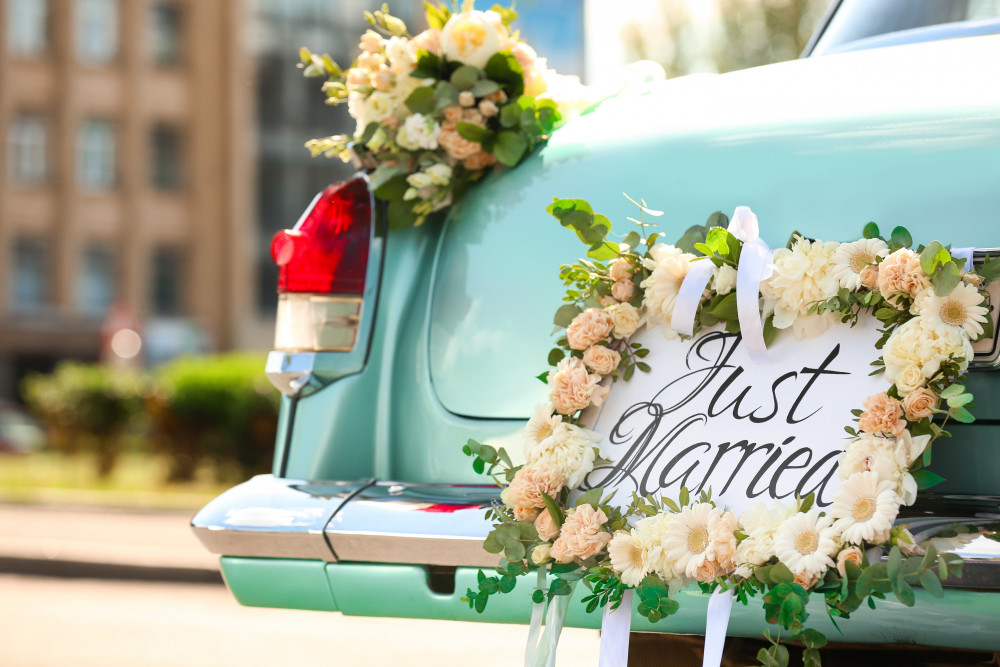
What Your Suppliers Wish You Knew
Created on: 31/08/2025
Updated on: 31/08/2025
When you're planning a wedding, you're juggling a hundred decisions at once — and it's easy to assume your suppliers will just make it all happen behind the scenes. And they will … to a point.
But ask any florist, photographer, or DJ what they really wish couples understood, and here’s what they’d probably tell you …
1. Photographers: “The best photos don’t just happen — they’re planned.”
It’s easy to assume that your photographer will just "capture the moment" — and they will. But getting those standout shots takes more than just pointing a camera and hoping for the best. Golden hour doesn’t move for anyone, and group shots take longer than most people think.
What photographers wish you knew:
Build time into your schedule. Great shots take space — not just physically, but time-wise. If you want relaxed, candid moments, your timeline needs breathing room.
Be clear on what matters. Every photographer has a different style, and so do you. If you love posed shots, say so. If you’d rather they stay in the background, let them know early.
Group shots take planning. Having a shortlist of must-have combinations (with names!) helps avoid long, awkward delays where half the wedding party has vanished.
Why it matters: When time is tight, it’s usually the photos that suffer — or worse, run late and delay everything else.
2. Florists: “Inspiration is great — but so is being realistic.”
Florists are creative, but they’re also juggling availability, delivery timings and venue access.
What florists wish you knew:
Flexibility makes for better flowers. Some blooms simply don’t hold up well in heat, cold, or long transport. Letting your florist guide you toward what’s in season (and in budget) usually leads to a better result.
Last-minute tweaks add stress. Changing your mind the week before the wedding — whether it’s more bouquets or a new archway install — often means reordering, reworking, and rethinking everything.
Don’t forget the logistics. Flowers need cool storage, water, time to set up, and space to work. The venue’s access time and layout can make or break how things look on the day.
Why it matters: Great florals are a blend of design and practical prep. When one side’s overlooked, the whole thing suffers.
3. Caterers: “We can handle almost anything — just not at the last minute.”
From food preferences to table layouts, caterers deal with more moving parts than most suppliers. The earlier they get accurate info, the smoother things go.
What caterers wish you knew:
Final numbers affect everything. Staffing, ordering, setup, portioning — even one extra table can mean a full-scale adjustment.
DIY additions need flagging. If you’re planning your own dessert table or late-night snacks, it affects layout, timings, and food safety protocols. Just let them know.
Stick to the agreed timeline. If speeches overrun or the ceremony starts late, food sits — and presentation and temperature can suffer.
Why it matters: Caterers often operate on military-level timing. Give them clarity, and they’ll deliver — literally and figuratively.
4. DJs & Bands: “We’re here to read the room — not follow a 50-song playlist.”
Music suppliers aren’t just there to press play — they’re watching the crowd, adjusting energy levels, and building atmosphere.
What DJs and bands wish you knew:
Give guidance, not instructions. A list of 5–10 must-plays (and a few “absolutely nots”) is helpful. A five-hour playlist? Not so much.
We need space and power — literally. Setup often takes longer than people expect, and venues don’t always have convenient access. A quick check in advance saves a lot of stress later.
Sound checks matter. Especially if they’re involved in speeches or live performances. Last-minute surprises rarely sound good.
Why it matters: A well-prepared music team keeps the flow of your day — and the dancefloor — running smoothly.
5. Hair & Makeup Artists: “Give us space — and more time than you think.”
Beauty prep often kicks off the entire day, but it’s frequently underestimated — until everything starts running late.
What HMUAs wish you knew:
Light matters. Sitting in a dark corner with no natural light isn’t ideal. Try to set up near a window, or at least a space with decent lighting.
Timing is everything. If there are four people to get through, allow time for everyone — and don’t book everything back-to-back. The domino effect from running late hits everyone, especially your photographer.
Trials aren’t just for style. They help plan timings and give you (and the artist) a clear idea of what to expect.
Why it matters: A well-paced morning sets the tone for the entire day. Rushing hair and makeup is a stress multiplier.
6. Venue Coordinators: “We’re not full planners — and we don’t chase other suppliers.”
It’s a common misunderstanding: just because the venue has a coordinator, it doesn’t mean they’re managing your wedding start to finish.
What venue teams wish you knew:
We’re site-focused. That means managing access, timings, and facilities — not organising your florist’s schedule or contacting your caterer.
Access isn’t guaranteed. If you haven’t confirmed early or late entry for suppliers, don’t assume it’s available.
Ask what’s actually included. Crockery, chairs, easels, signage — these vary wildly from venue to venue. Double-check what’s on offer to avoid last-minute hires.
Why it matters: Understanding where your venue’s responsibilities stop helps you avoid assumptions — and unexpected gaps on the day.
Most suppliers genuinely want your day to run as smoothly as possible. But they also need clarity, access, and time — not just on the day, but in the lead-up too.
Small things make a big difference:
- Share your expectations early
- Be realistic with what you’re asking
- And treat your team like collaborators, not just people ticking boxes
